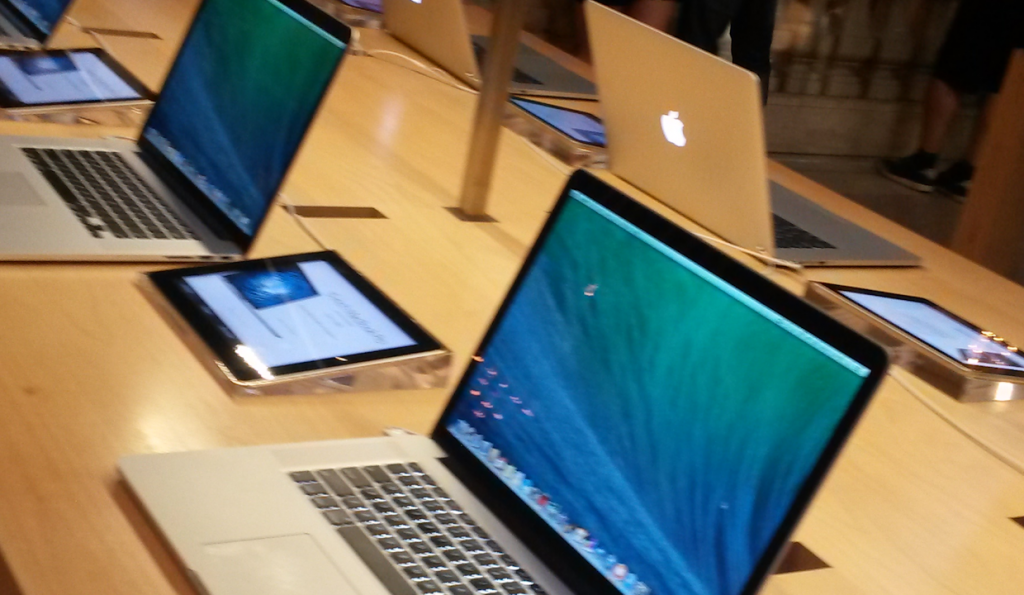This is a note, I might convert it into an essay. What’s the difference, I write the notes for me, I write essays for at least one other person. I am not sure this is finished, but as it stands, a bit of Corey Doctorow, and a bit of me. Corey Doctorow has turned his free, libre and open source gaze onto Apple.
In an article entitled “The Cult of the Mac”, he examines technical & legal barriers to entry to the iphone market and develops his enshittification arguments on how technology monopolies bind their customers to ensure that monopoly profit accrues to the corporation. Most pro-market economists believe that monopolies are bad, in that they distort “the hidden hand” of optimal resource allocation. Doctorow also talks about Apple’s opposition to laws mandating a “right to repair” and the extraordinary attempt to squash a 3rd party app, Beeper, that allows their messaging product to talk to other OS users. Doctorow in his manifesto against the enshittification of the internet [or on Medium] analyses the causes and economics of enshittification. What is enhittification, he says,
First, it is good to its users, then, it abuses its users to make things better for its business customers; finally, it abuses those business customers to claw back all the value for itself. Then, it dies.”
Doctorow summarises the process as follows,
Enshittification is what happens when companies do not face competition; and when they are able to use the incredible flexibility of digital computers to twiddle the knobs on the back end … [and then] … embrace tech laws, laws that make it illegal to twiddle back at them.
But returning to Apple’s role in this trend, Mike Masnick writes a polemic on Apple’s behaviour with respect to imessage and its popular add-on Beeper.
Possibly the most important line is, “For many years people like myself and Cory Doctorow have been talking up the importance of interoperability, open protocols, and an end to locked-down silos. Big companies, including Apple, have often made claims about “security” and “privacy” to argue against such openness. But this seems like a pretty clear case in which that’s obviously bullshit.”
While working at Sun, I bought myself a Macbook and was gifted an ipodtouch. I have no doubt that the Mac desktop is and was beautiful. Mac’s were very popular amongst our developers and our distinguished engineering cadre, possibly pushed by its then new CEO, Jonathan Scwartz, who admired the UI. For its time, it was a beautiful hardware platform, and even its laptops had a great screens. Also they came with a CD/DVD reader which made them heavy, and I needed mobility as I worked from home, in a company office, and at client sites although Apple solved this problem with the “Air”, and Sun with the Javacard and Sunray although these were rarely available in client offices.

One of the main reasons I gave up with the Mac, is that it did what Apple wanted and not what I wanted. The second was that it was becoming too hard to use without Apple’s cloud services; I was using another provider as were my main correspondents. While on a Mac it was possible to install third party products, it wasn’t always easy; I write about when Apple decommitted from ‘bash’ and the measures they took to restrict the use of 3rd party memory, including the adoption of the incredibly rare pentalobe screw. In another article I commented that the purpose of a Mac is to run MacOS and came to the conclusion that Apple Macs are desktop appliances.
In a longer piece, I wrote more about their beauty, the ease of use and configurability & upgradeability. I decided that my criticisms of the Apple Mac eco-system were something the world could live without but Corey Doctorow’s piece suggested that I might be wrong although I am just one voice.
A second startpoint for this round of think was I was considering if iphones were more secure than android machines and found this review from NordVPN. I commented on my diigo feed, “… they say yes although I find some of their scoring controversial. They say that the controlled [Apple] app store is a plus, that the integrated design makes it easier implement security by design, and easier to patch i.e. keep it up to date. The problem with both these advantages, which they count as three scoring points is that they are based on vendor control of a consumer’s device and secret code strategies [and the fact that IOS is a less desirable target]. However the folk tale persists.”
It all comes back to open source and a real right to use and a zero cost of exit. Doctorow predicted much of this in his 28C3 talk, the coming war against general computing. He also suggests that the EU’s Digital Market Act is an important attempt by the regulators to take back control and of course in Europe, there are no datenkraken, the tech companies have no votes and usually pay no taxes in Europe. I note that the GDPR has a limited right to extract personal data from data controller’s systems.